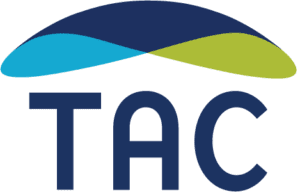Our Mission
The Technical Assistance Collaborative is a nonprofit organization dedicated to helping our nation’s human services, health care, homelessness, and affordable housing systems implement policies and practices that empower people to live healthy, independent lives in the communities they choose.
Focus Areas
With TAC’s assistance, progress toward preventing and ending homelessness is achieved through the strategic use of resources and supportive housing strategies.
TAC helps states and communities develop policies and financing to increase the supply of rental housing that meets the needs of extremely low-income people with disabilities.
TAC helps organizations and agencies to align systems, leverage resources, and deliver the effective care and services that people with mental illness and substance use disorders need to thrive.
TAC is a leader in helping states to understand their obligations Olmstead, and to develop and implement effective Olmstead plans.
TAC works closely with Medicaid programs to help states provide financially sustainable, evidence-based care for low-income behavioral health service recipients.
Featured Resource
Vouchers Database
TAC maintains a comprehensive database of Housing Choice Vouchers targeted to people with disabilities and other special needs. This database is updated each time the U.S. Department of Housing and Urban Development announces new funding awards.

